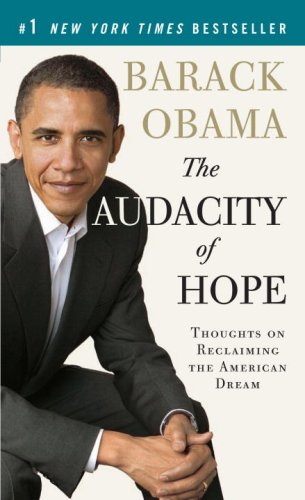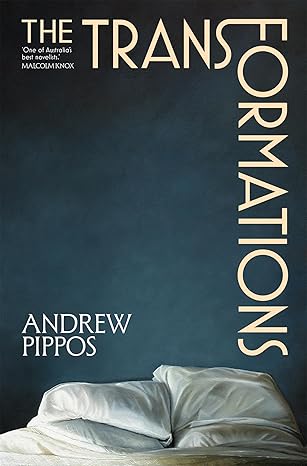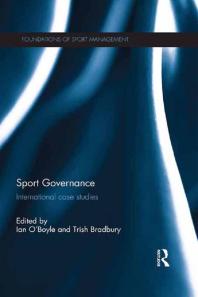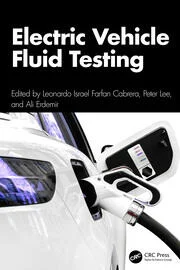Chapter Two Values THE FIRST TIME I saw the White House was in 1984. I had just graduated from college and was working as a community organizer out of the Harlem campus of the City College of New York. President Reagan was proposing a round of student aid cuts at the time, and so I worked with a group of student leaders—most of them black, Puerto Rican, or of Eastern European descent, almost all of them the first in their families to attend college—to round up petitions opposing the cuts and then deliver them to the New York congressional delegation. It was a brief trip, spent mostly navigating the endless corridors of the Rayburn Building, getting polite but cursory audiences with Hill staffers not much older than I was. But at the end of the day, the students and I took the time to walk down to the Mall and the Washington Monument, and then spent a few minutes gazing at the White House. Standing on Pennsylvania Avenue, a few feet away from the Marine guard station at the main entrance, with pedestrians weaving along the sidewalk and traffic whizzing behind us, I marveled not at the White House’s elegant sweep, but rather at the fact that it was so exposed to the hustle and bustle of the city; that we were allowed to stand so close to the gate, and could later circle to the other side of the building to peer at the Rose Garden and the residence beyond. The openness of the White House said something about our confidence as a democracy, I thought. It embodied the notion that our leaders were not so different from us; that they remained subject to laws and our collective consent. Twenty years later, getting close to the White House wasn’t so simple. Checkpoints, armed guards, vans, mirrors, dogs, and retractable barricades now sealed off a two- block perimeter around the White House. Unauthorized cars no longer traveled Pennsylvania Avenue. On a cold January afternoon, the day before my swearing in to the Senate, Lafayette Park was mostly empty, and as my car was waved through the White House gates and up the driveway, I felt a glancing sadness at what had been lost. The inside of the White House doesn’t have the luminous quality that you might expect from TV or film; it seems well kept but worn, a big old house that one imagines might be a bit drafty on cold winter nights. Still, as I stood in the foyer and let my eyes wander down the corridors, it was impossible to forget the history that had been made there— John and Bobby Kennedy huddling over the Cuban missile crisis; FDR making last- minute changes to a radio address; Lincoln alone, pacing the halls and shouldering the weight of a nation. (It wasn’t until several months later that I would get to see the Lincoln Bedroom, a modest space with antique furniture, a four-poster bed, an original copy of the Gettysburg Address discreetly displayed under glass—and a big flat-screen TV set atop one of the desks. Who, I wondered, flipped on SportsCenter while spending the night in the Lincoln Bedroom?) I was greeted immediately by a member of the White House’s legislative staff and led into the Gold Room, where most of the incoming House and Senate members had already gathered. At sixteen hundred hours on the dot, President Bush was announced and walked to the podium, looking vigorous and fit, with that jaunty, determined walkRip by XmosRips I say this not because I am seduced by the proximity to power. I see my invitations to the White House for what they are—exercises in common political courtesy—and am mindful of how quickly the long knives can come out when the Administration’s agenda is threatened in any serious way. Moreover, whenever I write a letter to a family who has lost a loved one in Iraq, or read an email from a constituent who has dropped out of college because her student aid has been cut, I’m reminded that the actions of those in power have enormous consequences—a price that they themselves almost never have to pay. It is to say that after all the trappings of office—the titles, the staff, the security details—are stripped away, I find the President and those who surround him to be pretty much like everybody else, possessed of the same mix of virtues and vices, insecurities and long-buried injuries, as the rest of us. No matter how wrongheaded I might consider their policies to be—and no matter how much I might insist that they be held accountable for the results of such policies—I still find it possible, in talking to these men and women, to understand their motives, and to recognize in them values I share. This is not an easy posture to maintain in Washington. The stakes involved in Washington policy debates are often so high—whether we send our young men and women to war; whether we allow stem cell research to go forward—that even small differences in perspective are magnified. The demands of party loyalty, the imperative of campaigns, and the amplification of conflict by the media all contribute to an atmosphere of suspicion. Moreover, most people who serve in Washington have been trained either as lawyers or as political operatives—professions that tend to place a premium on winning arguments rather than solving problems. I can see how, after a certain amount of time in the capital, it becomes tempting to assume that those who disagree with you have fundamentally different values—indeed, that they are motivated by bad faith, and perhaps are bad people. Outside of Washington, though, America feels less deeply divided. Illinois, for example, is no longer considered a bellwether state. For more than a decade now, it’s become more and more Democratic, partly because of increased urbanization, partly because the social conservatism of today’s GOP doesn’t wear well in the Land of Lincoln. But Illinois remains a microcosm of the country, a rough stew of North and South, East and West, urban and rural, black, white, and everything in between. Chicago may possess all the big-city sophistication of L.A. or New York, but geographically and culturally, the southern end of Illinois is closer to Little Rock or Louisville, and large swaths of the state are considered, in modern political parlance, a deep shade of red. I first traveled through southern Illinois in 1997. It was the summer after my first term in the Illinois legislature, and Michelle and I were not yet parents. With session adjourned, no law school classes to teach, and Michelle busy with work of her own, I convinced my legislative aide, Dan Shomon, to toss a map and some golf clubs in the car and tool around the state for a week. Dan had been both a UPI reporter and a field coordinator for several downstate campaigns, so he knew the territory pretty well. But as the date of our departure approached, it became apparent that he wasn’t quite sure how I would be received in the counties we were planning to visit. Four times he reminded me how to pack—just khakis and polo shirts, he said; no fancy linen trousers or silk shirts. I assured him that I didn’t own any linens or silks. On the drive down, weRip by XmosRips These values are rooted in a basic optimism about life and a faith in free will—a confidence that through pluck and sweat and smarts, each of us can rise above the circumstances of our birth. But these values also express a broader confidence that so long as individual men and women are free to pursue their own interests, society as a whole will prosper. Our system of self-government and our free-market economy depend on the majority of individual Americans adhering to these values. The legitimacy of our government and our economy depend on the degree to which these values are rewarded, which is why the values of equal opportunity and nondiscrimination complement rather than impinge on our liberty.
چکیده فارسی
ارزشهای فصل دوم اولین باری که کاخ سفید را دیدم در سال 1984 بود. من به تازگی از کالج فارغ التحصیل شده بودم و به عنوان یک سازمان دهنده جامعه خارج از پردیس هارلم در سیتی کالج نیویورک کار می کردم. پرزیدنت ریگان در آن زمان دور کاهش کمکهای دانشجویی را پیشنهاد میکرد، و بنابراین من با گروهی از رهبران دانشجویی کار کردم - اکثر آنها سیاهپوست، پورتوریکویی یا اروپایی شرقی بودند که تقریباً همه آنها اولین نفری بودند که در خانواده خود شرکت کردند. کالج - برای جمع آوری طومارهای مخالف کاهش و سپس تحویل آنها به هیئت کنگره نیویورک. این سفر کوتاهی بود که بیشتر در راهروهای بیپایان ساختمان ریبرن گشت و گذار میکردم، مخاطبانی مودب اما گذرا با کارکنان هیل که سنشان از من بزرگتر نبودند. اما در پایان روز، من و دانشآموزان وقت گذاشتیم و به سمت مرکز خرید و بنای یادبود واشنگتن رفتیم و سپس چند دقیقه به کاخ سفید خیره شدیم. ایستاده در خیابان پنسیلوانیا، چند قدمی ایستگاه نگهبانی تفنگداران دریایی در ورودی اصلی، با عابران پیاده که در امتداد پیادهرو میبافند و ترافیک پشت سر ما در حال چرخش است، نه از حرکت زیبای کاخ سفید، بلکه از این واقعیت که چنین بود شگفت زده شدم. در معرض شلوغی و شلوغی شهر؛ که اجازه داشتیم آنقدر نزدیک دروازه بایستیم و بعداً میتوانستیم به طرف دیگر ساختمان بچرخیم تا به باغ رز و محل اقامت در آن سوی ساختمان نگاه کنیم. به نظر من باز بودن کاخ سفید چیزی در مورد اعتماد ما به عنوان یک دموکراسی گفت. این مفهوم را مجسم می کرد که رهبران ما چندان متفاوت از ما نیستند. که آنها تابع قوانین و رضایت جمعی ما باقی مانده اند. بیست سال بعد، نزدیک شدن به کاخ سفید چندان ساده نبود. ایستهای بازرسی، نگهبانان مسلح، وانتها، آینهها، سگها و سنگرهای جمعشونده اکنون یک محیط دو بلوکی در اطراف کاخ سفید را مسدود کردهاند. خودروهای غیرمجاز دیگر در خیابان پنسیلوانیا تردد نمی کردند. در یک بعدازظهر سرد ژانویه، یک روز قبل از سوگند من در مجلس سنا، پارک لافایت عمدتاً خالی بود، و هنگامی که ماشین من از دروازههای کاخ سفید و بالای خیابان عبور میکرد، من یک غم و اندوه از آنچه گم شده بود احساس کردم. داخل کاخ سفید آن کیفیت درخشانی که از تلویزیون یا فیلم انتظار دارید را ندارد. به نظر می رسد خوب نگهداری شود اما فرسوده شده است، خانه قدیمی بزرگی که تصور می شود در شب های سرد زمستان ممکن است کمی کشدار باشد. با این حال، همانطور که در سرسرا ایستاده بودم و چشمانم را در راهروها پرسه می زدم، فراموش کردن تاریخچه ای که در آنجا ساخته شده بود غیرممکن بود – جان و بابی کندی که بر سر بحران موشکی کوبا جمع شده بودند. FDR تغییرات لحظه آخری را در آدرس رادیویی انجام می دهد. لینکلن به تنهایی، در سالن ها قدم می زند و وزن یک ملت را به دوش می کشد. (چند ماه بعد نگذشته بود که اتاق خواب لینکلن را دیدم، فضایی ساده با مبلمان عتیقه، یک تخت خواب با چهار پوستر، یک کپی اصلی از آدرس گتیزبورگ که زیر شیشه نمایش داده شده بود – و یک صفحه تخت بزرگ. تلویزیون بالای یکی از میزها. تعجب کردم که چه کسی در حالی که شب را در اتاق خواب لینکلن می گذراند، روی SportsCenter ورق زد؟) یکی از اعضای ستاد قانونگذاری کاخ سفید بلافاصله از من استقبال کرد و به اتاق طلا هدایت شدم. اعضای جدید مجلس و سنا قبلاً گرد هم آمده بودند. در هزار و ششصد ساعت روی نقطه، پرزیدنت بوش اعلام شد و با قدرت و تناسب اندام به سمت تریبون رفت. من دعوتهایم به کاخ سفید را برای آنچه هستند میبینم - تمرینهایی که با ادب مشترک سیاسی انجام میشود - و به این فکر میکنم که وقتی دستور کار دولت به هر طریقی جدی تهدید میشود، چاقوهای بلند چقدر سریع بیرون میآیند. علاوه بر این، هرگاه برای خانوادهای که یکی از عزیزان خود را در عراق از دست داده است نامه مینویسم، یا ایمیلی را میخوانم که از سوی یکی از مؤسسان که به دلیل قطع کمکهای دانشجویی از دانشگاه انصراف داده است، به یاد میآورم که اقدامات کسانی که در قدرت عواقب عظیمی دارد - بهایی که خودشان تقریباً هرگز مجبور به پرداخت آن نیستند. منظورم این است که بعد از اینکه همه ضوابط اداری - عناوین، کارکنان، جزئیات امنیتی - از بین رفتند، من رئیس جمهور و کسانی را که او را احاطه کرده اند تقریباً مانند همه افراد دیگر می بینم که دارای ترکیبی از فضایل هستند. و رذائل، ناامنی ها و صدمات دیرینه، مانند بقیه ما. مهم نیست که چقدر خط مشیهای آنها را اشتباه میدانم - و مهم نیست که چقدر اصرار دارم که آنها در قبال نتایج چنین سیاستهایی پاسخگو باشند - هنوز این امکان را دارم که با صحبت با این مردان و زنان، انگیزههای آنها را درک کنم. ، و در آنها ارزش هایی را که به اشتراک می گذارم تشخیص دهم. حفظ این وضعیت در واشنگتن آسان نیست. خطرات درگیر در بحث های سیاست واشنگتن اغلب بسیار زیاد است – چه ما مردان و زنان جوان خود را به جنگ بفرستیم. آیا اجازه میدهیم تحقیقات سلولهای بنیادی به جلو برود - که حتی تفاوتهای کوچک در دیدگاه بزرگنمایی میشوند. خواستههای وفاداری حزب، ضرورت کمپینها و تشدید درگیریها توسط رسانهها، همگی به ایجاد فضای بدگمانی کمک میکنند. علاوه بر این، اکثر افرادی که در واشنگتن خدمت می کنند، یا به عنوان وکیل یا به عنوان عامل سیاسی آموزش دیده اند - حرفه هایی که تمایل دارند به جای حل مشکلات، برنده شدن در بحث ها برتری داشته باشند. من می توانم ببینم که چگونه، پس از مدت معینی در پایتخت، وسوسه انگیز می شود که فرض کنیم کسانی که با شما مخالف هستند ارزش های اساسی متفاوتی دارند - در واقع، انگیزه آنها بد نیت است، و شاید افراد بدی باشند. با این حال، در خارج از واشنگتن، آمریکا کمتر احساس تفرقه می کند. به عنوان مثال، ایلینویز دیگر به عنوان یک ایالت ناقص در نظر گرفته نمی شود. اکنون بیش از یک دهه است که بیشتر و بیشتر دموکراتیک شده است، تا حدی به دلیل افزایش شهرنشینی، تا حدی به این دلیل که محافظه کاری اجتماعی جمهوریخواهان امروزی در سرزمین لینکلن به خوبی نمیپوشد. اما ایلینوی یک جهان کوچک از کشور باقی می ماند، خورش خشن شمال و جنوب، شرق و غرب، شهری و روستایی، سیاه، سفید، و همه چیز در این بین. شیکاگو ممکن است تمام پیچیدگی های شهر بزرگ لس آنجلس یا نیویورک را داشته باشد، اما از نظر جغرافیایی و فرهنگی، انتهای جنوبی ایلینویز به لیتل راک یا لوئیزویل نزدیک تر است و بخش های وسیعی از ایالت، در اصطلاح سیاسی مدرن، یک سایه عمیق در نظر گرفته می شود. از رنگ قرمز من اولین بار در سال 1997 از ایلینویز جنوبی سفر کردم. تابستان پس از اولین دوره من در مجلس قانونگذاری ایلینوی بود، و من و میشل هنوز پدر و مادر نبودیم. با به تعویق افتادن جلسه، نداشتن کلاس در دانشکده حقوق برای تدریس، و میشل مشغول کار خودش بود، من دستیار قانونگذاری خود، دن شومون، را متقاعد کردم که یک نقشه و چند چوب گلف را در ماشین و ابزار در سراسر ایالت به مدت یک هفته بیندازد. دن هم گزارشگر UPI و هم هماهنگ کننده میدانی برای چندین کمپین پایین ایالت بود، بنابراین او این منطقه را به خوبی می شناخت. اما با نزدیک شدن به تاریخ عزیمت ما، مشخص شد که او کاملاً مطمئن نبود که چگونه از من در شهرستان هایی که قصد بازدید از آن را داشتیم استقبال خواهم کرد. او چهار بار به من یادآوری کرد که چگونه چمدانهای خود را جمعآوری کنم - فقط لباسهای خاکی و چوگان، او گفت. بدون شلوار کتان فانتزی یا پیراهن ابریشمی. به او اطمینان دادم که کتانی یا ابریشم ندارم. این ارزشها ریشه در یک خوشبینی اساسی نسبت به زندگی و ایمان به اراده آزاد دارند-اعتماد به اینکه هر یک از ما میتوانیم از طریق چیدن و عرق کردن و هوشمندی، از شرایط تولد خود فراتر برویم. اما این ارزشها همچنین بیانگر اطمینان گستردهتری هستند که تا زمانی که مردان و زنان در تعقیب منافع خود آزاد باشند، جامعه بهعنوان یک کل پیشرفت خواهد کرد. سیستم خودگردانی ما و اقتصاد بازار آزاد ما به پایبندی اکثر آمریکاییها به این ارزشها بستگی دارد. مشروعیت دولت و اقتصاد ما به میزان پاداش این ارزشها بستگی دارد، به همین دلیل است که ارزشهای فرصتهای برابر و عدم تبعیض به جای اینکه به آزادی ما ضربه بزنند، مکمل هستند.
ادامه ...
بستن ...
those who sent them to Washington—all those people who have said to them at one time or another: “We have great hopes for you. Please don’t disappoint us.” Of course, there are technical fixes to our democracy that might relieve some of this pressure on politicians, structural changes that would strengthen the link between voters and their representatives. Nonpartisan districting, same-day registration, and weekend elections would all increase the competitiveness of races and might spur more participation from the electorate—and the more the electorate is paying attention, the more integrity is rewarded. Public financing of campaigns or free television and radio time could drastically reduce the constant scrounging for money and the influence of special interests. Changes in the rules in the House and the Senate might empower legislators in the minority, increase transparency in the process, and encourage more probing reporting. But none of these changes can happen of their own accord. Each would require a change in attitude among those in power. Each would demand that individual politicians challenge the existing order; loosen their hold on incumbency; fight with their friends as well as their enemies on behalf of abstract ideas in which the public appears to have little interest. Each would require from men and women a willingness to risk what they already have. In the end, then, it still comes back to that quality that JFK sought to define early in his career as he lay convalescing from surgery, mindful of his heroism in war but perhaps pondering the more ambiguous challenges ahead—the quality of courage. In some ways, the longer you are in politics, the easier it should be to muster such courage, for there is a certain liberation that comes from realizing that no matter what you do, someone will be angry at you, that political attacks will come no matter how cautiously you vote, that judgment may be taken as cowardice and courage itself may be seen as calculation. I find comfort in the fact that the longer I’m in politics the less nourishing popularity becomes, that a striving for power and rank and fame seems to betray a poverty of ambition, and that I am answerable mainly to the steady gaze of my own conscience. And my constituents. After one town hall meeting in Godfrey, an older gentleman came up and expressed outrage that despite my having opposed the Iraq War, I had not yet called for a full withdrawal of troops. We had a brief and pleasant argument, in which I explained my concern that too precipitous a withdrawal would lead to all-out civil war in the country and the potential for widening conflict throughout the Middle East. At the end of our conversation he shook my hand. “I still think you’re wrong,” he said, “but at least it seems like you’ve thought about it. Hell, you’d probably disappoint me if you agreed with me all the time.” “Thanks,” I said. As he walked away, I was reminded of something Justice Louis Brandeis once said: that in a democracy, the most important office is the office of citizen.Rip by XmosRips Shanghai as in California. And over the long term, David explained, that could spell trouble for the U.S. economy. “We’ll be able to keep attracting talent,” he said, “because we’re so well branded. But for the start-ups, some of the less established companies, the next Google, who knows? I just hope somebody in Washington understands how competitive things have become. Our dominance isn’t inevitable.” AROUND THE SAME time that I visited Google, I took another trip that made me think about what was happening with the economy. This one was by car, not jet, along miles of empty highway, to a town called Galesburg, forty-five minutes or so from the Iowa border in western Illinois. Founded in 1836, Galesburg had begun as a college town when a group of Presbyterian and Congregational ministers in New York decided to bring their blend of social reform and practical education to the Western frontier. The resulting school, Knox College, became a hotbed of abolitionist activity before the Civil War—a branch of the Underground Railroad had run through Galesburg, and Hiram Revels, the nation’s first black U.S. senator, attended the college’s prep school before moving back to Mississippi. In 1854, the Chicago, Burlington & Quincy railroad line was completed through Galesburg, causing a boom in the region’s commerce. And four years later, some ten thousand people gathered to hear the fifth of the Lincoln-Douglas debates, during which Lincoln first framed his opposition to slavery as a moral issue. It wasn’t this rich history, though, that had taken me to Galesburg. Instead, I’d gone to meet with a group of union leaders from the Maytag plant, for the company had announced plans to lay off 1,600 employees and shift operations to Mexico. Like towns all across central and western Illinois, Galesburg had been pounded by the shift of manufacturing overseas. In the previous few years, the town had lost industrial parts makers and a rubber-hose manufacturer; it was now in the process of seeing Butler Manufacturing, a steelmaker recently bought by Australians, shutter its doors. Already, Galesburg’s unemployment rate hovered near 8 percent. With the Maytag plant’s closing, the town stood to lose another 5 to 10 percent of its entire employment base. Inside the machinists’ union hall, seven or eight men and two or three women had gathered on metal folding chairs, talking in muted voices, a few smoking cigarettes, most of them in their late forties or early fifties, all of them dressed in jeans or khakis, T-shirts or plaid work shirts. The union president, Dave Bevard, was a big, barrel- chested man in his mid-fifties, with a dark beard, tinted glasses, and a fedora that made him look like a member of the band ZZ Top. He explained that the union had tried every possible tactic to get Maytag to change its mind—talking to the press, contacting shareholders, soliciting support from local and state officials. The Maytag management had been unmoved. “It ain’t like these guys aren’t making a profit,” Dave told me. “And if you ask ’em, they’ll tell you we’re one of the most productive plants in the company. Quality workmanship. Low error rates. We’ve taken cuts in pay, cuts in benefits, layoffs. The state and the city have given Maytag at least $10 million in tax breaks over the last eightRip by XmosRips Worst of all, it will mean fewer opportunities for younger Americans, a decline in the upward mobility that’s been at the heart of this country’s promise since its founding. That’s not the America we want for ourselves or our children. And I’m confident that we have the talent and the resources to create a better future, a future in which the economy grows and prosperity is shared. What’s preventing us from shaping that future isn’t the absence of good ideas. It’s the absence of a national commitment to take the tough steps necessary to make America more competitive—and the absence of a new consensus around the appropriate role of government in the marketplace
ادامه ...
بستن ...










![Our mission to the court of Marocco [Morocco] in 1880, under Sir John Drummond Hay - pdf Our mission to the court of Marocco [Morocco] in 1880, under Sir John Drummond Hay - pdf](https://dl.libsan.ir/images/1/12/112108724_694b9e9769312.jpg)